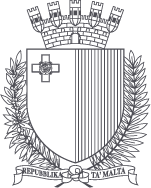The Malta Arbitration Centre is a body corporate having a distinct legal personality and although it was set up in 1996 through the enactment of Chapter 387 of the Laws of Malta, it started its operations in March 2000.
The functions of The Centre, which are provided in Article 10 (1) of The Act, are:
- To promote Malta as a centre for international commercial arbitration;
- To provide for the conduct of international arbitration in Malta;
- To encourage domestic arbitration as a means of settling disputes;
- To provide the necessary facilities for the conduct of arbitration;
- To advise the Government on any matters mentioned in the foregoing;
- To perform such other function assigned to it by The Act or any other law; and
- To perform any other function supplementary or ancillary to the above.
Furthermore, The Centre shall have the power exercisable through its Board and subject to the provisions of The Act to make rules to be published in the Gazette providing for:
- procedure for arbitrations;
- the manner and requirements (including any fees payable therefor) for registration of any document under The Act;
- guidelines and optional models or specimens for the drawing up of arbitration clauses and agreements; and
- any other matter in connection with which rules may be made under any provision of The Act.
The policy and general administration of the affairs and business of The Centre is entrusted to a Board of Governors, which Board shall consist of not less than three and not more than five members, appointed by the President of Malta acting on the advice of the Prime Minister. One of the members is appointed as Chairman and another one as Deputy Chairman, both of whom are required by law to have practiced as an advocate in Malta for a period of not less than twelve years. The members of the Board shall hold office for a six year-period and are eligible for re-appointment.
The Centre has a Registrar, who is also the secretary to the Board. The Registrar is appointed by the Board and is required by law to perform such functions as may be delegated to him/her by the Board from time to time. The Registrar is vested with the legal representation of The Centre and has the power to administer oaths of office required to be taken by arbitrators or any other person involved in arbitration proceedings.
The Centre’s staff is at present made up of the Registrar, an Office Administrator and two Senior Clerks. The employees of The Centre are appointed by the Board under such terms and conditions as the said Board shall deem appropriate.






